Her spirit of resistance will live on
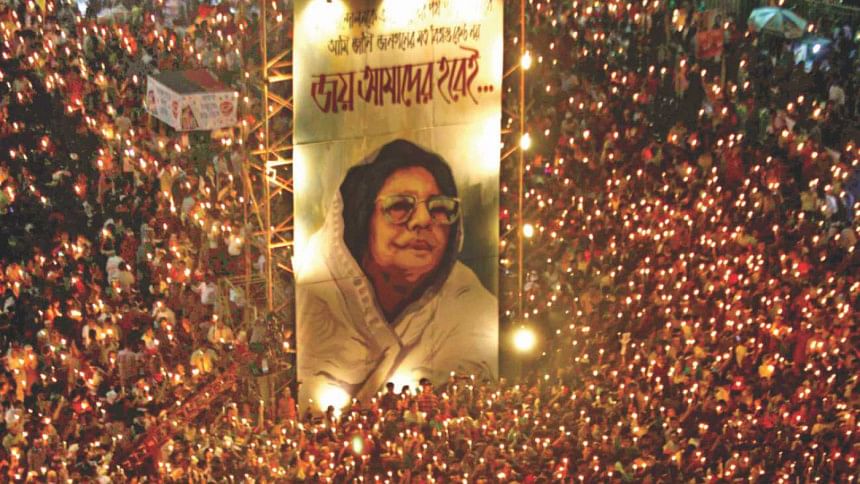
It was February 27, 2004. I was a resident of Shaheed Janani Jahanara Imam Hall at Jahangirnagar University. It was around 11:30 pm when somebody rushed to my room and said that the eminent writer Dr. Humayun Azad had been attacked by a group of religious extremists just outside Bangla Academy and was critically injured. In protest we decided to bring out a procession. At 12:30am, we started out from Jahanara Imam Hall and students from other residential halls joined us.
When I was a student of JU, politically conscious students of Jahanara Imam Hall would always take the lead in the student movements: against sexual harassment, increased tuition fees, etc. We took great pride being students of the hall named after the Shaheed Janani. In the spirit of Jahanara Imam's legacy, we raised our voice against any oppression that we faced or witnessed on the campus. Our faces would light up as we chanted slogans:
Jahanara Imamer rokto amader dhomonite/ Ei rokto konodin porabhob mane na/ Moulobadider chharbe na ei rokto konodino. (Jahanara Imam's blood flows through our veins/ This blood knows no defeat/ It will not let the bigots go unpunished.)
When one thinks of Jahanara Imam, it is Ekattorer Dinguli, her son Shaheed Rumi, her fight against cancer that one remembers. But for me, her legacy lies in how she and her fellow compatriots made it possible to unite everyone associated with the Liberation War for a single demand for justice: trying the war criminals.
" Jahanara Imam worked day and night to engage more and more people with the movement. Her efforts saw the support of all political parties who believed in the values of our Liberation War. Jamaat-e-Islami's continuous propaganda could not hamper her indomitable spirit.
Jahanara Imam became widely known as Shaheed Janani after her wartime diary Ekattorer Dinguli was published in 1986. She had been diagnosed with mouth cancer in 1981. When she had to undergo a major surgery, she knew that she didn't have much time left. So she wanted to write about Rumi, her son whom she had lost in the war. She started writing Ekattorer Dinguli, despite being weighed down by cancer. As her writing progressed, so did the cancer. However, when Ekattorer Dinguli was published, it stirred up the whole country. Although it was her personal account of the war, it spoke to the hearts of people who had lived through the days of fear, uncertainty and hope.
About her book, she said, "Numerous young men like Rumi laid down their lives for our country's liberation. Their mothers, families and relatives are far more destitute than me. I was at least able to talk about my experience with the readers. But their stories are not known to people, they are still bleeding."
Ekattorer Dinguli was subsequently translated in Urdu under the title Ek Gharwali Khawateen Ki Kahani so that the people of Pakistan, who had a distorted idea of what happened in Bangladesh in 1971, could at least have a glimpse of the mass murder and war crimes committed by the Pakistan occupation forces and their collaborators.
The last two and a half years of Jahanara Imam's life were the most significant time of her life. She totally dedicated herself to the cause of ridding this land of the unpunished war criminals.
The initiatives undertaken to try the war criminals after our independence saw little success. Immediately after independence, the very first initiative for war crimes trial was taken not by the government but by citizens' groups. On December 29, 1971, only thirteen days after our victory in the war, Zahir Raihan, a noted writer and filmmaker, had formed a commission to investigate the killing of the intellectuals. After his disappearance on January 30, 1972, the work of the commission stopped. On March 21, 1981, Lt Col (retd) Kazi Nuruzzaman, Bir Uttam, a sector commander (sector 7) and the then Chairman of Bangladesh Muktijodhdha Sangsad, declared that the war criminals would be tried in a Gano Adalot (People's Court).
Eleven years later, on January 19, 1992, under the leadership of Jahanara Imam, the Ekattorer Ghatak Dalal Nirmul Committee (Committee for Realisation of Bangladesh Liberation War Ideals and Trial of War Criminals) resurfaced this demand. Jahanara Imam worked day and night to engage more and more people with the movement. Her efforts saw the support of all political parties who believed in the values of our Liberation War. Jamaat-e-Islami's continuous propaganda could not hamper her indomitable spirit. The committee set up a Gano Adalot on the 21st anniversary of our independence (March 26, 1992) when they tried Ghulam Azam, the chief collaborator of the Pakistani occupation army who planned the systematic killing of innocent Bangalis and the rape of two lakh women in 1971. It was a symbolical trial of the genocide and crimes against humanity.
Before her death on June 26, 1994, Jahanara Imam wrote to her fellow countrymen from her hospital bed: "This movement still has a long way to go.… I know there is no one as trustworthy as the ordinary people…. To realise the ideals of our Liberation War, where there is no place for the war criminals, I am handing over the responsibility to carry on the movement of Ekattorer Ghatak Dalal Nirmul Shomonnoy Andolon to the people of Bangladesh. We surely will win."
The people of Bangladesh did not let her down. In March 2010, the International Crimes Tribunal was formed and the trial of war criminals began. In February 2013, when the Ganojagoron Mancha was formed, people from all strata gathered in Shahbagh, chanting the same slogans that we used to chant at any protest rally: Jahanara Imamer rokto amader dhomonite/ Ei rokto konodino juddhaporadhider chharbe na….
Jahanara Imam's large portrait hanging over the protestors symbolised the vision which had brought them together. It was her legacy that had been passed down to them. For me, Jahanara Imam lives on in that slogan which united us to fight for our ideals back then as it continues to do today.
The writer is member of the editorial team, The Daily Star.
Sources:
Tahmida Sayeeda, Jahanara Imam, Bangalee Shamagra Prokashana, 2004
Jahanara Imam, Muldharay Cholechhi: Gano Adaloter Dinlipi, Goddopoddo, 2014
Millat Hossain, Gano Adalot 1992: Phire Dekha O Mullayon, ASK Bulletin,2008





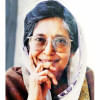
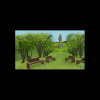
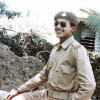

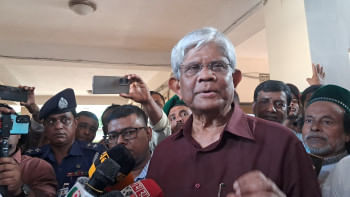
Comments